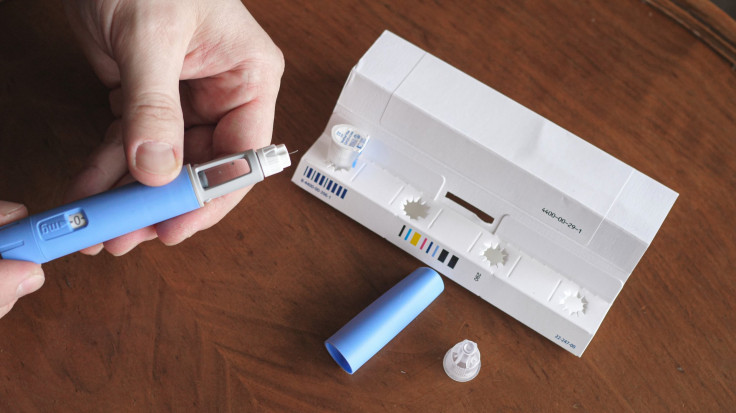Ozempic Craze Hits China: Many Turn To Scalpers, Fake Prescriptions To Secure Doses

China is the next country to be obsessed with the weight-loss effects of the diabetes drug Ozempic. The medication is now in short supply in the country as many want to get their hands on it.
Bloomberg reported Monday that image-conscious Chinese have started to turn to scalpers and fake prescriptions in their desire to shed pounds quickly with the help of Ozempic and its sibling drug Wegovy.
The sudden jump in demand has led to a shortage that left many type 2 diabetes patients struggling with their limited supply of medication to regulate their blood sugar.
According to the outlet, the demand skyrocketed after Chinese influencers began showing off their "Ozempic-fueled bodies" on social media. Brick-and-mortar stores and online pharmacies quickly sold out of Ozempic because of this.
Many used false prescriptions to obtain stocks of the coveted drug. Others became scalpers overnight and started selling the drug online for twice as much as the original price.
The demand and shortage reportedly prompted Chinese biotech companies to rush into making alternatives in hopes of getting a slice of the booming market.
In the U.S., Ozempic is not approved by the Food and Drug Administration (FDA) for casual weight loss. However, this did not stop many people from getting their hands on the popular diabetes medication.
Even anecdotal reports of side effects, such as Ozempic face, failed to steer weight-loss enthusiasts away from the drug, causing a shortage in supply for diabetes patients.
Despite the commotion, Ozempic's popularity soared higher after Hollywood celebrities raved about the drug's body-transforming capabilities. Additionally, recent studies showed that Ozempic offers heart health benefits on top of weight loss.
Based on the studies, semaglutide — sold under the brand names Ozempic and Wegovy — could lower the risk of heart attack, stroke and cardiovascular death among people with type 2 diabetes.
Back in China, doctors took the initiative in discouraging non-diabetic people from purchasing and hoarding Ozempic via social media, hoping that those who really need the drug for medical reasons could secure doses amid the shortage.



























